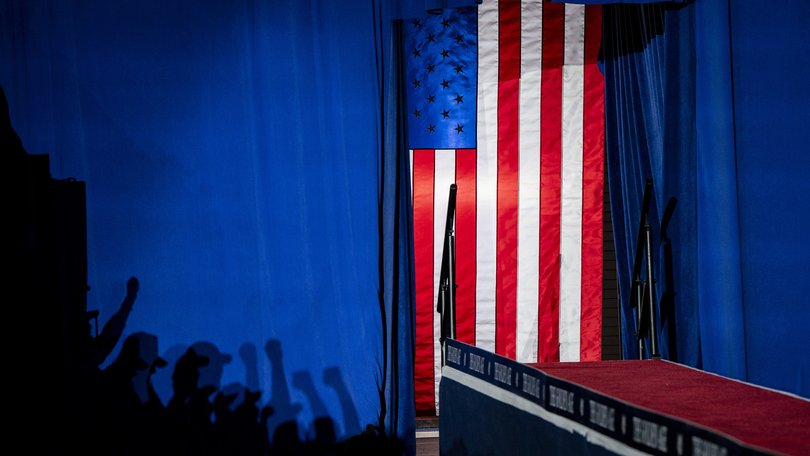THE NEW YORK TIMES: Conspiracies are real, the theories can be traps

Scientists studying the cosmos often speculate about hypothetical forces that might explain peculiar data or results. For instance, some astronomers have suggested that our solar system has an extra planet, way beyond the demoted Pluto, whose effects explain certain other celestial movements.
And modern cosmology assumes a vast invisible substance, so-called dark matter, whose hypothesised existence makes sense out of gravitational effects that would be otherwise mysterious.
Conspiracy theories, lately so influential in American debates, can be understood as the political equivalent of dark-matter theories. They emerge in situations where some movement or action seems unlikely or bizarre — unless you can posit some unseen element in the story, some hidden force exerting influence.
Sign up to The Nightly's newsletters.
Get the first look at the digital newspaper, curated daily stories and breaking headlines delivered to your inbox.
By continuing you agree to our Terms and Privacy Policy.“Something is missing from the data” is not just a researcher’s reaction to a scientific mystery. It’s also a citizen’s response to developments that don’t seem to quite make sense.
Sometimes this response and the theorising it generates are totally misguided, like a crackpot scientist who invents an extra universe when a tiny tweak of his results would make the issue go away.
But sometimes there is something unseen in the story, and the mistake isn’t to theorise about it; it’s to lock on too quickly to a single theory, often for ideological reasons, when other solutions might work just as well.
Take, for example, the case of Jeffrey Epstein, about which I remain a conspiracist, in the sense that I believe that key events and influences in his story have yet to be revealed.
But the leading theories about those hidden events are heavily conditioned by ideological impulses. MAGA activists and influencers have long focused on the possibility that he ran a sex ring for wealthy men, which fits their existing narratives about child trafficking and elite perversion.
Then more recently, the Trump resistance has taken up the theory that the Epstein dark matter might be directly connected to Donald Trump himself. And at the same time, part of the populist right is hyping the long-standing theory that Epstein was connected to Mossad, because it dovetails with their growing hostility to Israel.
Suppose, though, that the crucial secret is that Epstein was a brilliant financial criminal, adept at moving money for shady international operators, and that his sexual habits were tolerated because of those talents, not because he had sexual kompromat on his friends.
I’m not saying this is the truth, just citing it as a scenario that’s plausible and also somewhat orphaned because it doesn’t boost an ideological cause.
Then consider Russiagate, where we have cycled from one conspiratorial reading of the 2016 election to another: The resistance theory about malign Russian influence over Trump’s campaign or Trump himself, which birthed the Robert Mueller investigation and a climate of hysteria, has given way to the Trumpist theory that the Obama administration conspired to promote a false narrative about collusion in order to cripple the Trump presidency from the start.
In each case, the theories have been interpreting the same underlying conspiracy, largely hidden in 2016 but more visible since — a Russian information operation to undermine American democracy. But both theories, at least as I read the evidence, have ended up assigning too much conspiratorial agency to their domestic enemies, and too little to the Russians themselves.
The anti-Trump side looked at how eagerly the Trump campaign responded to the 2016 email hacks and WikiLeaks dumps and assumed, they must be in cahoots with Vladimir Putin.
And now the pro-Trump side looks at the misinformation and motivated reasoning involved in the inception of the Russia investigation and assumes, they must have known that this was a fake story from the start.
But in both cases, it’s quite possible that the only self-conscious Machiavellians were the Russians; it was their conspiracy, in which both Republicans and Democrats collaborated as marks.
Finally, a word on a favourite mystery of mine: the weird governmental interest in UFOs, which deserves attention because Chuck Schumer and Mike Rounds, the Senate minority leader and the staid Republican senator from South Dakota, are once again supporting adding a provision requiring UFO-related disclosure to the National Defence Authorisation Act.
(And in Rounds’ case, publicly suggesting that what senators have seen in classified settings is weirder than the weird stuff that’s already out there.)
My persistent interest in this subject has annoyed both UFO sceptics (“more column inches about the aliens, Ross?”) and, sometimes, UFO believers (because I don’t think any of the theories or claimed reveals have delivered the goods).
But I’m trying to strike a balance. There is clearly something weird going on with this subject, something we aren’t seeing, a dark matter influence that might be a national security psy-op or might be something stranger. And it’s OK to just say that, repeatedly, while refusing the prison of a theory formulated without essential facts.
This article originally appeared in The New York Times.
© 2025 The New York Times Company
Originally published on The New York Times
